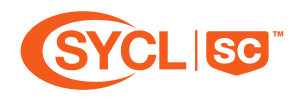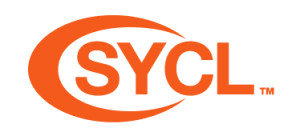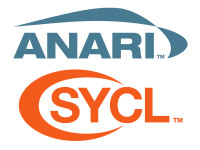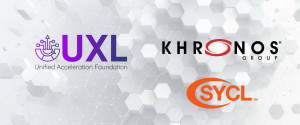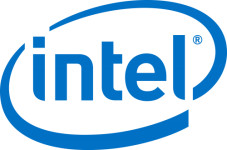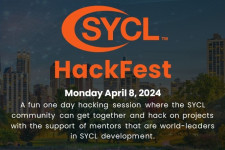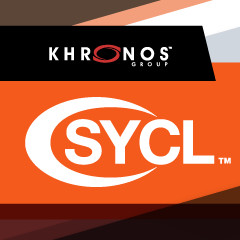In this Codeplay blog, they examine the limitations of the current SYCL images API design and demonstrate how the bindless images extension addresses these challenges. They explore the extension’s core concepts, walk through a practical example, showcase its key benefits, and discuss our plans for the future of bindless images in SYCL.
Sycl tagged news
Khronos Releases SYCL Rev 9 Specification and Roadmap Updates for SC24 Conference
SYCL continues to grow as developers contribute and provide feedback, shaping the future of this portable programming model. Recently, the SYCL Working Group announced the release of Revision 9 of the SYCL 2020 Specification and exciting upcoming features. The release of SYCL 2020 Revision 9 enhances specification readability and eases implementation.
SYCL Working Group members will be at Supercomputing (SC24) to showcase recent and roadmap developments and offer in-depth, hands-on experience in SYCL programming for high-performance computing.
Khronos at Supercomputing 2024
Khronos Group’s ANARI and SYCL will each be represented Supercomputing 2024 in Atlanta, Georgia on November 17-22. ANARI will have a Birds of a Feather (BOF), and SYCL will also have a BOF along with a hands-on tutorial. Come talk to us!
PyTorch 2.4 using SYCL for Deep Learning on Intel GPUs
PyTorch 2.4 now supports Intel® Data Center GPU Max Series and the SYCL software stack, making it easier to speed up your AI workflows for both training and inference. This update allows a consistent programming experience with minimal coding effort and extends PyTorch’s device and runtime capabilities, including device, stream, event, generator, allocator, and guard, to seamlessly support streaming devices. This enhancement simplifies deploying PyTorch on ubiquitous hardware, making it easier for you to integrate different hardware back ends.
UXL Foundation and Khronos Collaborate on the SYCL Open Standard for C++ Programming of AI, HPC and Safety-Critical Systems
In a world where AI, HPC and Safety-Critical acceleration is shifting toward heterogeneous architectures that integrate processors with different architectures from multiple vendors, the need for seamless interoperability and shared open standards has never been more critical. That’s why the UXL Foundation (Unified Acceleration) and the Khronos Group have entered into a liaison agreement to help accelerate the evolution of open accelerated heterogeneous programming.
Intel Compiler First to Achieve SYCL 2020 Conformance
Intel announced that the oneAPI DPC++/C++ Compiler has completed conformance testing and is the first compiler officially supporting the full SYCL 2020 specification from the Khronos Group. Having it as a complete reference implementation is a major milestone not only for Intel, but for the entire accelerated computing software industry.
For developers, having a SYCL 2020-conformant compiler means they can have confidence that their SYCL code compiled by Intel’s compiler is portable and reliably performs on different GPUs in the long term. An application developed using SYCL 2020 can adapt to changing platform architecture and future generations of diverse and new accelerators. This worthy investment will continue adding value by reducing development and maintenance costs for many years as new architectures emerge.IWOCL 2024 Announces Call for SYCL HackFest Submissions
IWOCL 2024 will be hosting a SYCL Hacking Festival on Monday April 8 for teams interested in spending a full day hacking with SYCL, the cross-platform abstraction layer that enables code for heterogeneous and offload processors to be written using modern ISO C++. The HackFest provides a great opportunity for the community to get together and hack on projects that they feel they could progress within a single day. By hacking together teams will have the opportunity to discuss general code development, specific project issues, optimisation techniques, the latest SYCL features, and more. All participants will be supported by mentors that are world-leaders in SYCL development.
SYCL goes Green with SYnergy
Biagio Cosenza from the University of Salerno / CINECA Supercomputing Center pens this blog on the SYnergy research project that enables efficient C++ based heterogeneous parallel programming with the Khronos SYCL API. The blog describes the SYCL-based SYnergy API’s ability to map high-level energy semantics to vendor APIs, and by running it on a large-scale compute cluster, it shows scalable energy savings up to 64 GPUs.
Khronos Launches SYCL 2020 Adopters Program & Open Source Conformance Test Suite
The Khronos Group announces the launch of the SYCL 2020 Adopters Program to enable implementations to become officially conformant to the latest-generation SYCL specification—and to ensure that SYCL is consistently implemented by multiple vendors to create a reliable platform for developers. SYCL 2020 is the open industry standard for single source C++-based heterogeneous parallel programming. The SYCL Working Group has released an updated Conformance Test Suite (CTS) as part of the SYCL 2020 Adopters Program, making it available as an open source GitHub project to enable broad industry participation in implementation testing and ongoing test suite improvements.
Khronos Launches SYCL 2020 Adopters Program and Open Source Conformance Test Suite
Exascale Computing Project at the University of Cambridge uses Khronos SYCL Standard to Develop Performance Portable FEniCS Libraries for the Finite Element Method
AdaptiveCPP 23.10.0 Released with New Single-Pass SYCL Compiler
AdaptiveCpp 23.10.0 released! New project name, world’s first single-pass SYCL compiler, C++ standard parallelism, production Intel GPU support, OpenCL backend and more! A huge shift in the project’s capabilities.
Codeplay Blog: My Summer of Bad Code: an Investigation of Common Pitfalls When Writing SYCL Code
Dylan Cavers created a project to educate others on how to write more robust, bug-free SYCL code, something that is not always obvious how to do when first learning a new API. In this blog, Dylan gives us their motivation behind the project, negative SYCL tests that showcase bad SYCL code, synchronization mistakes, differences in implementation-defined behavior, feature misuse, and implicit behavior not written explicitly but happens as a side-effect.
Codeplay Announces oneAPI Construction Kit
Codeplay announced the latest extension of the oneAPI ecosystem with an open source project that allows code written in SYCL to run on custom architectures for HPC and AI.
The oneAPI Construction Kit includes a reference implementation for RISC-V vector processors but can be adapted for a range of processors, making it easy to access a wealth of supported SYCL libraries.
The Khronos Group has issued a RFP for a SYCL 2020 Reference Guide
The SYCL 2020 Reference Guide project aims to improve the SYCL developer ecosystem by providing a more usable version of the SYCL specification. An online searchable reference is needed, along the lines of cppreference.com, through which developers can rapidly find relevant material in top ranked web searches or browsing.
Submit your bid by 6am PDT, Thursday, June 15, 2023!
